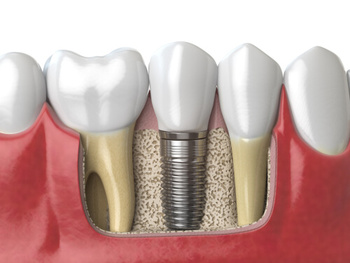When it comes to restoring smiles, modern dentistry has made leaps and bounds in recent years. Among the innovative solutions, titanium teeth implants stand out as a reliable and popular choice for those seeking to replace missing teeth. In this comprehensive guide, we will delve deep into the world of implants, offering insights into their materials, advantages, and some things you need to know before committing to the procedure.
Understanding Titanium Dental Implants
The materials used to create these permanent fixtures are at the core of implant dentistry. Titanium, particularly commercially pure titanium, has emerged as the go-to material for dental implants due to its incredible properties.
Titanium Versus Other Materials:
– Titanium Implants:
Titanium and its alloys are renowned for their strength, resistance to corrosion, and biocompatibility. Their integration with the jaw bone is seamless, promoting natural bone tissue growth around the implant post.
– Zirconia Implants:
Another option available in the market is zirconia dental implants. Made from zirconium oxide, these ceramic implants provide an aesthetic, metal-free solution. They are also durable, but the debate of titanium versus zirconia continues.
– Ceramic Implants:
As with zirconia dental implants, other ceramic dental implants offer a more aesthetic finish, especially for those with metal allergies or concerns about titanium toxicity.
Manufacturing Process:
The manufacturing process of these implants is meticulous to ensure their quality and safety. It begins with the selection of high-grade titanium alloy, which is then subjected to various fabrication methods. Typically, the titanium is machine-milled into the desired implant shape, be it a screw or post design. To enhance the osseointegration potential, the surface of the implant may undergo treatments such as acid-etching, sandblasting, or plasma spraying, which creates a textured or roughened surface that facilitates better bone adherence. Sterilisation is a crucial final step, ensuring that the implants are free from contaminants before being packaged. Advanced technologies, such as computer-aided design (CAD) and computer-aided manufacturing (CAM), have further streamlined the production process, enabling precise and consistent results tailored to individual patient needs.
Integration with the Bone: The Titanium Advantage in Dental Implants

Titanium, a biocompatible metal, plays a pivotal role in the success of dental implants, largely due to its unique ability to integrate with the bone. When a titanium dental implant is surgically placed into the jawbone, a biological process called osseointegration commences. During osseointegration, the bone cells begin to grow and adhere directly to the titanium surface without intervening soft tissue, forming a strong bond. This bond is critical for the stability and longevity of the implant. The inherent properties of titanium, including its resistance to corrosion and its non-reactivity to bodily fluids, make it an ideal material for this application. The successful integration of titanium implants with the jawbone not only provides a robust foundation for prosthetic teeth but also ensures that the implant can mimic the natural function and feel of real teeth, making it a preferred choice in modern dentistry.
Why Choose Titanium Teeth Implants?
- Durability:
Titanium is highly resistant to external forces, making titanium teeth implants a long-term solution for missing teeth.
- Biocompatibility:
Titanium is compatible with the human body. This means there’s a lower risk of allergic reactions or bone inflammation post-implant surgery.
- Versatility:
Whether it’s a single tooth replacement or multiple teeth, titanium dental implants offer flexible solutions tailored to individual needs.
Things to Consider Before Going for Dental Implant Surgery
Like any surgical or invasive procedure, dental implant surgery comes with considerations:
- Cost:
While titanium implants cost might be higher upfront compared to other methods of tooth replacement, they can be more cost-effective in the long run due to their longevity.
- Procedure Complexity:
At times, underlying health conditions or bone loss in the jaw might necessitate procedures like bone grafting before implant treatment.
- Metal Allergies:
Though rare, some individuals may have metal allergies. It’s essential to discuss any potential reactions with an oral surgeon.
- Healing Process:
Post-implant surgery, the healing process involves the jaw bone integrating with the implant, a critical phase for the success of the implant.
Affordable Dental Implants and the Cost Factor
In the realm of dental restoration, dental implants are often perceived as a superior solution due to their longevity and resemblance to natural teeth. However, the associated costs can be a deterrent for many potential patients. As the demand for dental implants has increased, there has been a growing focus on making them more affordable without compromising on quality. Some clinics and practitioners now offer package deals, discounts, or financing options to make the procedure more accessible. Additionally, advances in technology and streamlined techniques are helping reduce costs. Nevertheless, it’s important for patients to be cautious of offers that seem too good to be true. A significantly lower price might indicate the use of inferior materials or less experienced professionals, which could lead to complications or implant failure in the future. As always, when considering dental implants, thorough research and consultation are crucial to balance affordability with quality care.
Titanium Implants vs. Other Materials: A Critical Review

The debate between titanium dental implant materials and others, like zirconia or ceramic, is ongoing. While titanium has a very high success rate, considerations such as personal aesthetic preferences, metal allergies, or concerns about the manufacturing process might tilt the balance for some individuals.
Zirconia dental implants, for instance, offer a metal-free alternative and can be just as durable, depending on the treatment and care. However, the magnetic resonance imaging compatibility of titanium versions is a noteworthy advantage.
Maximising the Lifespan of Your Titanium Dental Implants: Essential Care Tips
Proper care and maintenance of titanium dental implants are vital for ensuring their longevity and function. Here’s a list of essential tips for looking after your implants:
1. Regular Brushing and Flossing: Similar to natural teeth, implants require brushing at least twice daily. It’s important to use a soft-bristled toothbrush to prevent scratching the crown’s surface. Additionally, regular flossing is crucial for removing debris around the implant and between the teeth.
2. Avoid Hard and Sticky Foods: Chomping on hard foods such as ice or hard candy runs the risk of damaging the dental crown, while sticky foods have the potential to dislodge it.
3. Routine Dental Check-ups: Regular visits to your dentist, typically every six months, are essential to monitor the implant, the surrounding gums, and overall oral health.
4. Avoid Smoking: Smoking can inhibit the healing process post-surgery and increase the risk of implant failure in the long run.
5. Use a Non-abrasive Toothpaste: Abrasive toothpaste can scratch the surface of the crown. Opt for a gel-based or sensitive formula.
6. Consider an Antibacterial Mouthwash: A mouthwash can effectively reduce the bacterial load in your mouth, safeguarding both dental implants and natural teeth against potential infections.
7. Wear a Mouthguard if Necessary: For those who play contact sports or grind their teeth at night, a mouthguard can protect the implant from undue pressure or impacts.
Adhering to these care guidelines will not only extend the lifespan of your titanium dental implants but also ensure optimal oral health.
In Conclusion
Titanium teeth implants are a breakthrough in dental technology, offering a robust and long-lasting solution for those looking to replace missing teeth. While they are not the only option available, their unique properties make them a highly sought-after choice in implant dentistry.
Before making a decision, Consult us and weigh all the available options. With the right combination of care and maintenance, you can enjoy your titanium implants for a long time. So don’t hesitate to contact us today if you need advice on how best to care for your new smile!
Note: Any surgical or invasive procedure carries risks. Before proceeding, you should seek a second opinion from an appropriately qualified health practitioner.
